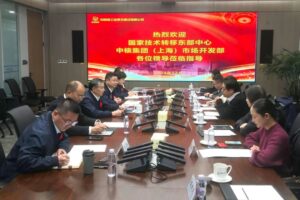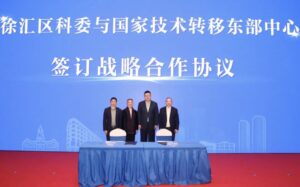"Climate change is a serious global problem that threatens the survival and development of mankind, and addressing global climate change is a common cause for all mankind. In the process of global climate governance for more than 30 years, China has always been an important participant and contributor, and is changing to an important leader."
Last September, President Xi Jinping, on behalf of the Chinese Government, announced China's 2060 carbon peak and carbon neutrality targets to the world at the 75th anniversary summit of the United Nations. This pledge represents a new position and commitment by the Chinese government to global climate change and reflects China's responsibility and commitment to address the common climate change challenges facing all of humanity. Although China's per capita carbon dioxide emissions are only half of those of the United States, China's total carbon dioxide emissions, which exceeded 10 billion tons last year because it is a country with a large population, actually account for nearly 30% of the world's total emissions, a ratio that is higher than China's GDP output and population share of the world, so China is facing the pressure to achieve the goal of carbon peaking and carbon neutrality. pressure comes with it.
In the post-epidemic era, how to establish a new global partnership and reconstruct global governance and development? How to face the issues brought about by transformational development, and how to achieve a comprehensive and sustainable future to cope with the crisis and major social challenges, there is an urgent need for global insightful people to share their insights and wisdom.

On the morning of May 31, Mr. Xu Lin, Chairman of China-US Green Fund, gave a keynote speech on "Carbon Neutral, Carbon Summit" at the opening ceremony of the 2021 Pujiang Innovation Forum - Global Technology Transfer Conference. In his speech, Mr. Xu Lin pointed out that warming is a common challenge for all mankind, and the common measure to combat warming is to curb carbon dioxide emissions. The green low-carbon transition is a global topic, and the response to climate change is a common problem for mankind. The research and development, results trading and property rights protection in the field of green and low-carbon technologies also require extensive and deep international cooperation.
At the same time, Mr. Xu Lin also pointed out that promoting the achievement of the comprehensive goal of carbon neutrality and carbon peaking is actually a systemic change in China's economic and social development, which involves changes in the industrial structure of the economy, changes in energy and production and consumption, and even changes in the daily life of the residents, changes in the production and consumption of agriculture and food, etc.
For such a systemic change to take place, technological innovation is the main driving force and support; and to develop innovation, a good innovation incentive system is crucial, including the transformation and utilization of green and low-carbon technology results and the building of technology trading systems and systems. In this way, broad and deep international cooperation around research and development, exchange, technology diffusion and application of green and low-carbon technologies can be accelerated.




